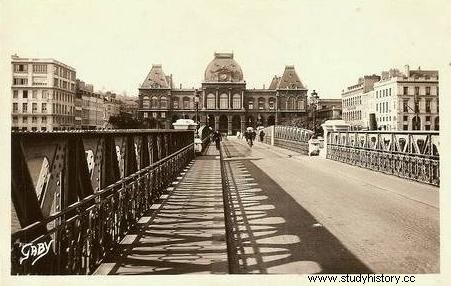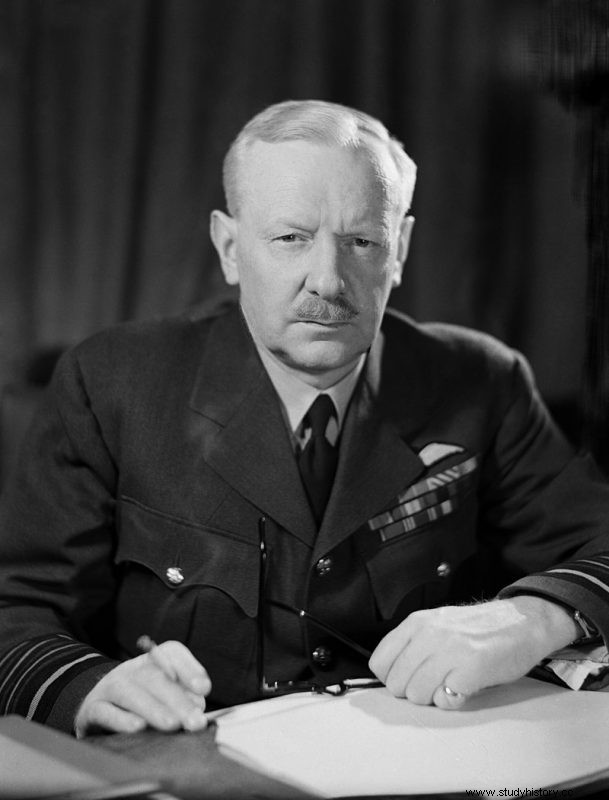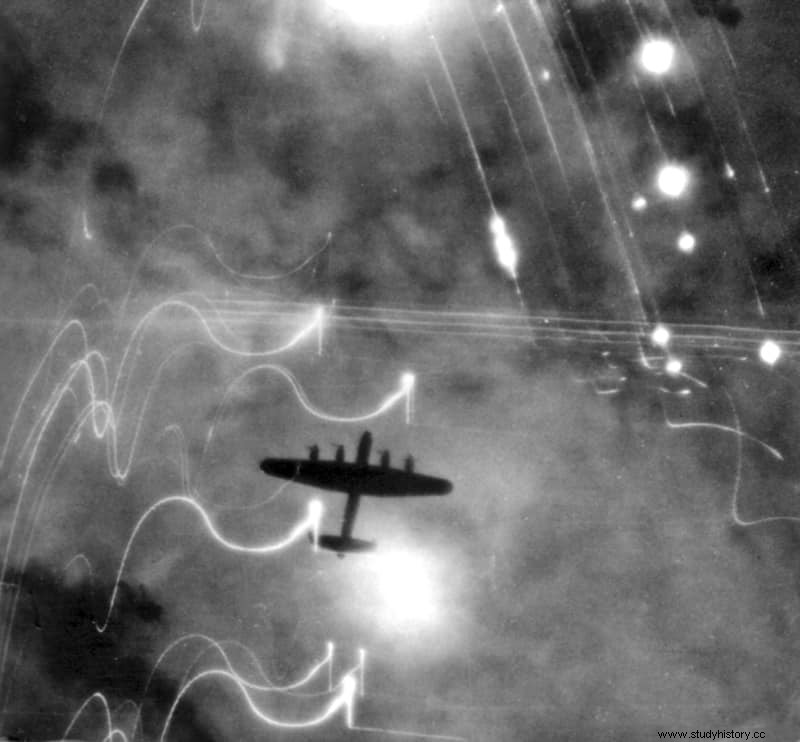The city of Le Havre was one of the most important ports in the English Channel. The allied Anglo-American forces had to take it if they wanted to continue their advance through France without having to worry about a redoubt of German forces on their flank and rear, making an assault on the city inevitable.
The calm before the storm
The allies had gathered information about the city before the assault. The British headquarters knew where the German barracks and headquarters were located, however they did not know the plans for the deployment of the troops throughout the city, so the previous assault and bombardment would be carried out in the dark.
On September 3, 1944, at 9:00 p.m., a capital meeting between the English and Germans took place on the outskirts of Le Havre. No minutes of the meeting were kept. General Croquer is known to have given Colonel Wildermuth an ultimatum.
If they did not surrender within 48 hours they would carry out a bombardment. The British insisted on the inequality of troops and assured the German garrison that if they agreed to surrender, the soldiers would be well treated. Otherwise, there would be a deluge of fire. The Germans refused to surrender.
Then the question of civilians arose. Today we know that the question was asked in the negotiations. Who made it? Who rejected her? Perhaps the Germans thought that the English would not dare to devastate the city with the civilians in it or they hoped that Wildermuth would surrender so as not to be responsible for a drama.
The Germans wanted the population to be evacuated but slowly, in order to prolong the siege as long as possible. They also asked that the essential civilian population remain in the city to serve the German garrison.

Back at his headquarters at Fort Tourneville, Wildermuth knew that the German army was falling back. A few days before, the commander of the 15th army, who had to go as reinforcements, warned him of his withdrawal, leaving him alone. He knew that the allies had reached Belgium. The war seemed lost.
He, too, had to fight discouragement. The allies had been dropping thousands of letters from Eisenhower on the city for days inviting German soldiers to surrender and promising they would be well treated. The propaganda was not very effective. Only a few soldiers deserted.
The sides calculate their forces
On the morning of September 4, Wildermuth let the English know that the garrison would not surrender. Was it out of a sense of duty? Because he wanted to fulfill his oath? Because he feared for the safety of his family that he had stayed behind in Nazi Germany in case Hitler felt betrayed by too quick a surrender? We will never know.
Wildermuth made another request. A 48-hour truce to be able to evacuate civilians. General Croquer denied it. Wildermuth's determination to uphold his commander's oath and Croquer's willingness to take the fortress as soon as possible sealed Le Havre's fate.
Rumors of an air raid spread. But the news did not frighten the inhabitants. In more than four years of occupation by Nazi Germany troops, the city had suffered more than 130 aerial bombardments. They were used to it and knew what to do in the event of an attack.
Croquer launched Operation Astonia. He turned to the bombardment command led by Arthur "bomber" Harris, Marshal of the Royal Air Force. Nicknamed by his men the butcher . At the command of his Lancaster aircraft commando, he crushed Nazi Germany with his bombs since 1941. Rumors about him spread like wildfire. They said that he liked to see the cities destroyed.
Despite the harshness of the attacks, strategic bombing was almost the only effective method of attack against the German armed forces for Britain from 1940 to 1944, and was therefore widely used. It was possible to attack the heart of the country and cut off its communications, something that the British ground forces did not have in their power.
Harris had however developed the theory that a constant and saturating bombardment of German cities would cause the morale of the civilian population to drop and thus cause the enemy to surrender. All this could be achieved only with airplanes, without the need to use ground forces.

Marshal Harris however did not want to bomb France. He liked that country and he knew the damage that kind of bombardment caused, but he had to obey orders. As absurd as it sounds, Croquer was unaware of British bombing techniques:mass bombing. Although it was primarily intended for Germany, this type of bombing was common in France since 1944. Some Norman towns were wiped off the map to delay German reinforcements and stop their displacement.
British strategic bombing
Croquer called for a rain of fire on Le Havre without destroying the city. but how to do it with British bombing techniques? How to be precise when massively bombing a target?
The technique was rudimentary but quite effective. In a first pass, a group of devices flew over the target and dropped large flares on priority targets. They could be red, green, or even white.
The next tool to secure the target was the bomber guidance system. The British had a very particular technique. Through radio control they could triangulate the exact position of the bombardments and tell the squads if they were on target or not.
The third tool that allowed to guarantee a certain precision was the presence in the sky of a clear man:the master bombardier or master of ceremonies. This was an experienced officer who flew over the area several times during the bombardment to see that everything was going smoothly and correct the bombardment if necessary.

Wildermuth, aware of the imminence of the bombing, ordered the evacuation of the headquarters and the barracks. The men were deployed under cover in bunkers at the entrance to the city.
On September 4, Croquer believed that the bombardment would not be necessary. He had provided for the ability to cancel it at the last minute using the password lemons . But the password given was oranges , which launched the Astonia operation.
